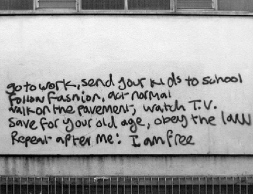I planned to outline and put together a comprehensive and long review of Peter Jackson’s The Hobbit: An Unexpected Journey; however, it isn’t going to happen. Too damn busy with other things. So what follows are some short(-ish) and haphazard observations about the film.
Two things to get out of the way first:
1. I consider Tolkien’s The Hobbit one of the most influential books on my development as a reader. My father (a fantasy and SF guy) read it to me when I was 6-7; and I read it myself at 8 (and again a few years later, and again, and a few more times adding up to 7 or 8 total). Having reread it last month, however, I have few romantic, nostalgic illusions about it overall. It is, in a number of ways, a flawed book, and it doesn’t engage me anywhere near as much as an adult as it did when I was much younger. I’m still a fan, though. I would venture that those who grew up as kids loving the Harry Potter books (which I read the first 3 installments of before deciding not to go further) will feel similarly rereading those books ten or twenty years down the road.
2. What is below the cut will contain so-called spoilers of the film and all of the novel (not just the section the film covers).




You must be logged in to post a comment.